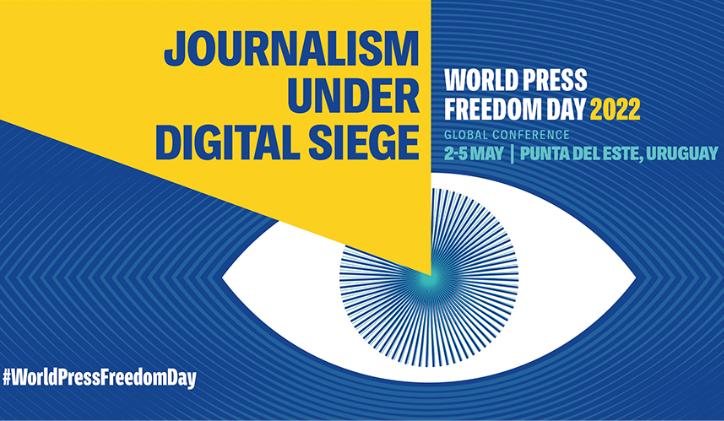
Today, May 3, is World Press Freedom Day. The theme declared by UNESCO for 2022 is “Journalism under digital siege․” It emphasizes surveillance and digitally-mediated attacks on journalists.
The situation of freedom of speech in Armenia has been assessed by various international structures. Reporters Without Borders (RSF) published its report today.
According to the report, Armenia has improved its position in the World Press Freedom Index, ranking 51st among 180 countries. In 2021, Armenia was in 63rd place.
For comparison let us note that Georgia ranks 89th, Azerbaijan 154th, and Turkey 149th.
The main points of the report
The introduction to the RSF report states, “Despite the pluralistic environment, the media remains polarized. Armenia is facing an unprecedented level of misinformation and hate speech, especially in the context of the Nagorno-Karabakh territorial dispute between Armenia and Azerbaijan.”
According to the report, the main source of news in Armenia is not television, but social networks, which are accessed by two-thirds of the population every day.
The other main points of the report on Armenia of the World Press Freedom Index are presented below.
- After the “Velvet Revolution” of 2018, the media field has grown. Independent online news sites are evolving, with Civilnet.am, hetq.am, Factor.am, and Azatutyun.am playing a significant counterbalance within the democracy.
- Nevertheless, most of the broadcast and print media, which have mainly political and commercial interests, continue to be pressured by their editorial policies.
- Since 2020, two political topics have been particularly sensitive: the Nagorno-Karabakh war and epidemic management. Some political groups carry out misinformation activities and attack journalists.
- The legal framework of the media does not sufficiently protect the freedom of the press and does not meet European standards. Recent reforms have not addressed the issue of disinformation and the placements of orders.
- On the contrary, the criminalization of defamation, for which the amount of the fine has been tripled, poses a serious danger to journalists.
- Most media outlets are controlled by political figures close to or influential in political movements.
- Paid subscription models are few, and the advertising market remains underdeveloped, which limits the financial independence of private media.
- 2021 was difficult for the media and journalists because of the Karabakh war, elections, and epidemic. In general, cases of violence against journalists go unpunished.
- On the other hand, the state media refrains from criticizing the government, and the new law guaranteeing the transparency of media owners is not yet in force.
Freedom House: Armenia has regressed in the field of press independence.
In April, Freedom House published a report on Armenia.
The main points of the report related to press freedom are:
- Armenia has transitioned from authoritarian to hybrid governance, but “still does not meet democratic standards.”
- Independent and investigative media are relatively free, and although they are small, they provide sound coverage, challenging state broadcasters and the official media.
- Cases of violence against journalists have also increased. This statement was based on data from the Committee to Protect Freedom of Expression (CPFE). In 2021 (including October), there were almost two dozen cases of violence against media representatives.
- The law passed in July 2021, which criminalized insults and slander against officials and public figures, left a bad mark on the measure of media freedom.
- What is worrying is that this law can easily be abused by restricting the right to free speech, and the media can be subjected to direct political pressure if they criticize politicians.
- The measure of freedom is also influenced by the self-censorship that exists in the educational and academic system.
The main hashtags for sharing information about World Press Freedom Day on social media and joining discussions are #WPDF, #WPDF2022, and #WorldPressFreedomDay.
Gayane Asryan


Add new comment
Comments by Media.am readers become public after moderation. We urge our readers not to leave anonymous comments. It’s always nice to know with whom one is speaking.
We do not publish comments that contain profanities, non-normative lexicon, personal attacks or threats. We do not publish comments that spread hate.